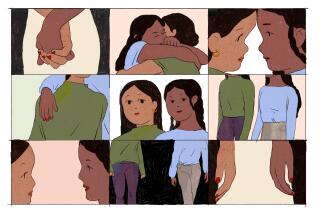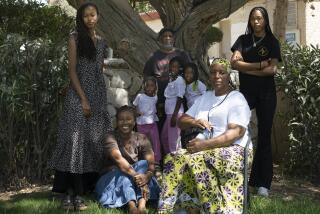Jews Living in Ethiopia
- Share via
In response to “Some Ethiopian Jews Still Praying to Leave,” World Report, May 5:
This article concerning the Jews that are still in Ethiopia contained a number of errors.
We Jews have lived in Ethiopia for the last 3,000 years under varying degrees of freedom and dignity. Throughout our history we referred to ourselves as “Beta Israel” meaning “House of Israel.” Ethiopians (non-Jews) call us Falasha , an Amharic word meaning “one who is exiled or an outsider.” It is derived from the Geez term Falasia , which means exiled. Falasha is a disparaging term. During the past several centuries Jews and Judaism in Ethiopia were under severe attack and Jews suffered enormous erosion of our rights, which included the bar against Jews owning land in Ethiopia.
By the 19th Century the emperors of Ethiopia believed it was in their interest to culturally unify Ethiopia. They wanted all of their subjects to be Christian and they saw no place for Jews and Judaism. At the same time Europe was rediscovering Ethiopia.
The emperors of Ethiopia sought to modernize Ethiopia through increased relations with Europe. Among those in Europe who were extremely interested in Ethiopia were Christian missionaries. They flooded Ethiopia to carry out intense missionary activities, much of which was specifically aimed at Ethiopia’s Jewish community.
With the blessing and strong backing of the ruling powers in Ethiopia, these missionaries set out to intimidate and prey upon Ethiopia’s persecuted Jews. The missionaries “preached” that whoever converted would be spared and those that did not would be turned in to the king. Fearing for their lives, many Jews with nowhere to turn carried out insincere conversions. These forced conversions numbered between 300,000 and 400,000. This occurred in the 1850s and 1870s, not the 1970s as you erroneously reported. Also, it was at this time that the term “Felas mura” was introduced. This term derived from the words Falasha and Amhara , which was the politically dominant tribe. Felas mura referred to a Falasha who went to the Amhara. The term Felas mura did not mean “horse fat,” as you erroneously reported.
HABTNESH EZRA, Ethiopian Jewry Foundation Inc., Los Angeles
More to Read
Sign up for Essential California
The most important California stories and recommendations in your inbox every morning.
You may occasionally receive promotional content from the Los Angeles Times.










